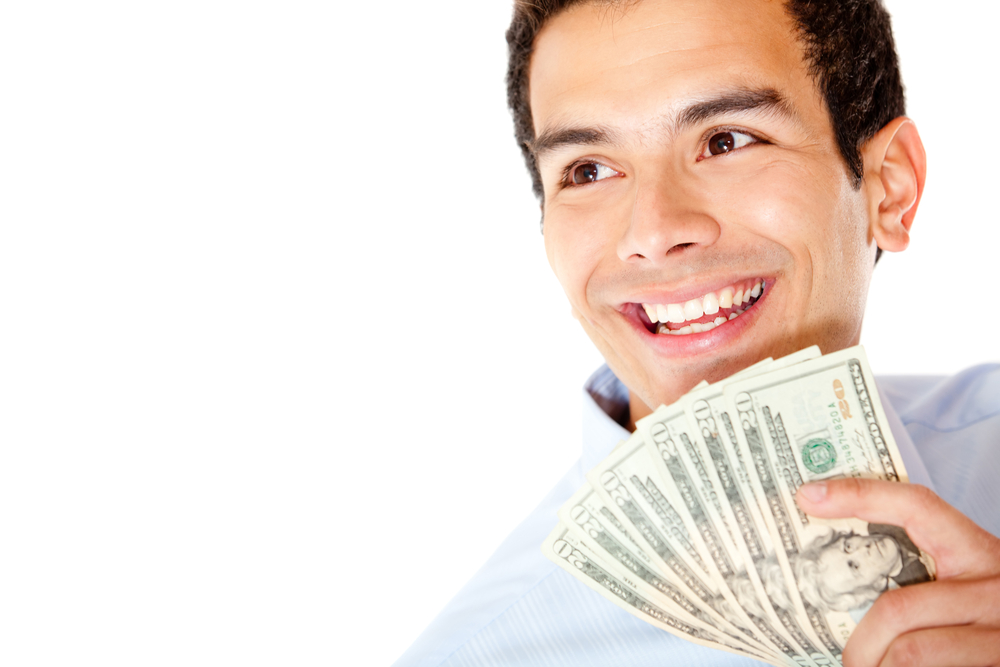Avoiding cash flow crises is crucial for the success and sustainability of your construction business. Managing cash flow is vital for small business owners. Poor cash flow management can create significant challenges even if your business is profitable.
Cash is a fact; Profit is an opinion
A cash crisis can be emotionally devastating and even kill your business. If you've ever had to beg, borrow, and steal to cover tomorrow's payroll, you know what I mean.
Understanding cash flow
Cash flow refers to the money moving in and out of your business. Cash inflows come from sales, interest earned, and investments. Cash outflows cover rent, payroll, bills, and supplier payments. Positive cash flow means your inflows exceed outflows, while negative cash flow indicates more money going out than coming in.
Read More
Topics:
QuickBooks Contractors Financial Reports,
cash report,
Cash Flow,
Construction Bookkeeping And Accounting,
Contractor Cash Flow Problems,
Increase Cash Flow,
Improve Construction Cash Flow
In the world of small businesses, positive cash flow is king. The driving force keeps your business engine running smoothly, covering all your liabilities. But what happens when outflow exceeds inflow? Cash flow problems ensue, threatening the survival and growth of your construction business.
These cash flow problems can originate from various sources, including macroeconomic issues like recessions, natural disasters, wars, and microeconomic problems like business decisions and performance. However, careful planning and smart accounting practices can cushion or even avoid these financial blows.
Managing cash flow is a vital part of running a successful construction business. Some contractors think managing cash flow means tracking how much money enters and leaves their business, but more goes into it.
Read More
Topics:
Cash Flow,
Contractor Cash Flow Problems,
Increase Cash Flow,
Construction Forecast,
Contractor Guidance,
Improve Construction Cash Flow
Finding some certainty can make all the difference in the unpredictable construction business world. While the future remains a mystery, budgeting and cash flow forecasting tools can significantly reduce uncertainty, allowing you to anticipate challenges, learn from past events, and enhance your ability to navigate your business.
Budget vs. Cash Flow: The Crucial Distinction
A common misconception is that a budget and cash flow are interchangeable. A budget is a projection of future possibilities, enabling you to consider various sales and expense scenarios. On the other hand, a cash flow provides a record of actual expenses and sales revenue that flow into and out of your business each month. Although they often deal with the same data, their applications differ.
Read More
Topics:
Cash Flow,
Construction Accountant Who Listens,
Construction Company Cash Flow,
Contractor Tips,
Construction Business Budget,
Budget Vs. Cash Flow
Getting approved for a business loan or line of credit is more complicated than qualifying for a personal loan. Small construction business owners must be adequately prepared to meet with a lender to present their business in the best possible light and ready for the money they need.
Think of all the times:
- You loaned money to a friend or relative
- Provided labor and materials for somebody's home or business without a deposit check
- Did change order work that you never got paid for doing and never will
- Gave a subcontractor/employee an advance on their paycheck, and you never got paid back
Multiply that by 100,000, and you will understand why banks seem so tight-fisted about loaning money.
Read More
Topics:
Cash Flow,
Bookkeeping,
Contractor Cash Flow Problems,
Financing Secrets Revealed,
Banking
In the business world, cash flow remains the lifeblood that keeps your operations running smoothly. Whether you're a start-up finding your feet or a seasoned business in the construction industry, managing and maintaining a steady cash flow can be challenging. But a few small changes can make a world of difference to your cash flow and overall revenue.
Your business needs cash. Cash keeps your company in operation and enables it to grow, so you should know how much your business needs to survive. Although many think the answer is linked solely to operating expenses, this isn't true.
No single factor determines how much cash every construction business needs to have on hand. Somewhere between 3-6 months of operating expenses is an excellent baseline to start from, but there's more to it than that.
Read More
Topics:
Cash Flow,
Bookkeeping,
Contractor Cash Flow Problems,
QuickBooks Construction Accounting,
Improve Construction Cash Flow
Construction business owners face various sources of stress that can negatively impact their well-being and overall business performance. Some leading causes of stress for construction business owners include financial pressures, tight deadlines, workforce management, safety concerns, and regulatory compliance. If not adequately addressed, these factors can lead to burnout, decreased productivity, and even business failure.
Many entrepreneurs believe hard work and determination are all it takes to build and sustain a successful business. But when you consider the pressures of running a company, it seems wise to add effective stress management to the list. Left unchecked, stress can erode your passion and undermine performance – not to mention a severe toll on your health.
Read More
Topics:
Cash Flow,
Construction Accountant Who Listens,
MAP vs. PAM,
Contractor Cash Flow Problems,
Do What You Do Best And Outsource The Rest,
Contractor Tips
Sales and profit are two very different things – as a construction business owner, you can find yourself without the cash to pay bills despite making sales you knew were profitable. You may also be startled to discover that solid cash flows from sales deliver little profit.
A cash flow forecast tracks cash flowing in and out of your business. The timing of these flows enables you to identify cash-rich and cash-lean periods. This helps make the right decisions, such as buying assets or preparing for cash shortfalls.
Cash flow is essential to the survival of your business – arguably more so than profit in the short term. Profit may be necessary for the longer term, but cash is needed to pay bills and operating costs quickly.
For example, if you're a plumber with reasonable cash reserves, you can survive until your business becomes profitable. However, if your business runs out of cash, you'll need to find a solution quickly to avoid going bankrupt.
Read More
Topics:
Construction Cash Flow,
Cash Flow,
Construction Accountant Who Listens,
Contractor Cash Flow Problems,
Contractor Tips,
Improve Construction Cash Flow
Cash is king! Construction Company cash flow is the movement of money in and out of your Construction Company; these movements are known in accounting circles as inflow and outflow. Inflows for your Construction Company primarily come from selling goods or services to your customers, but keep in mind that inflow only occurs when you make a cash sale or collect on receivables. Other examples of cash inflows are borrowed funds, income derived from sales of assets, and investment income from interest.
Outflows for your Construction Company are generally the result of paying labor, material, other direct and indirect costs of goods sold, and overhead expenses.
Read More
Topics:
Construction Cash Flow,
Cash Flow,
Construction Accountant Who Listens,
Contractor Cash Flow Problems,
Contractor Tips,
Improve Construction Cash Flow
Cash flow refers to the movement of money into and out of your business. It's based on the amount of money you bring in minus the amount you spend. A positive cash flow means bringing in more than you're spending. A negative cash flow means you aren't bringing in enough to cover your expenses.
Your construction company can run into problems by not charging enough for goods or services, having late-paying clients, growing too quickly, or simply spending too much money.
Solid cash flow management is vital to ensuring your contracting business survives, but not everyone understands what cash flow is or how to manage it. That's likely what makes it a leading cause of stress for small business owners.
Read More
Topics:
Construction Cash Flow,
Cash Flow,
Construction Bookkeeping And Accounting,
Increase Cash Flow,
Construction Systems And Processes,
Contractor Guidance
The pains caused by an economic downturn can be excruciating, which is why most of us dread it.
A recession can mean massive layoffs, jobs becoming harder to find, and wages frozen, which means consumers hunker down and spend less-- often worsening the slowdown unknowingly.
For most businesses, especially small businesses, recessions can be brutal. Just take, for example, the Global Financial Crisis (GFC) that struck the world in 2008. Between December 2008 and December 2010, approximately 1.8 million small businesses shut down. When Investopedia looked into the financial crisis's impact on small businesses after a decade, they found out that business creation has not yet returned to pre-crisis levels.
Read More
Topics:
Be Do Have,
Cash Flow,
Construction Marketing,
Business Plan For Your Construction Company,
Contractor,
Contractor Tips,
finance,
Construction Business After COVID-19










































